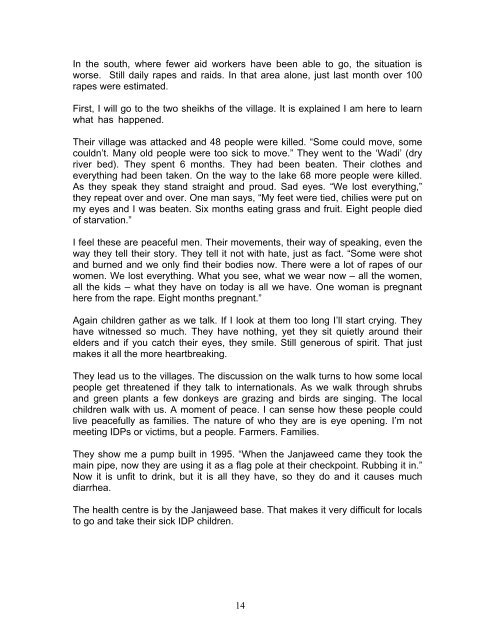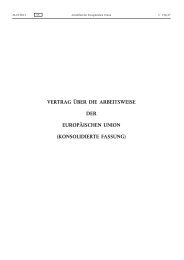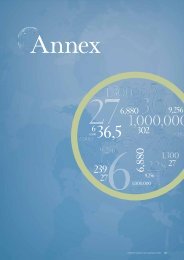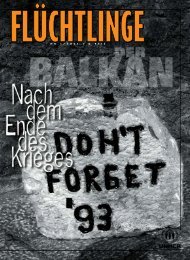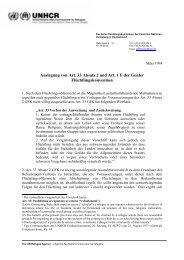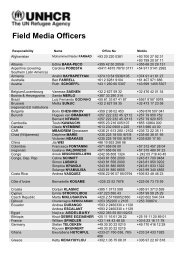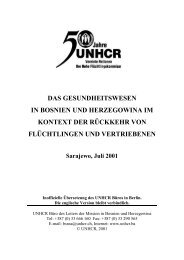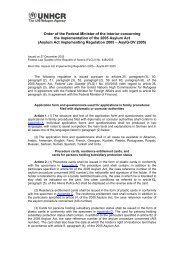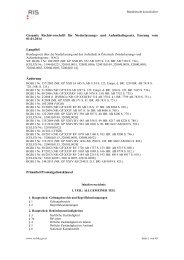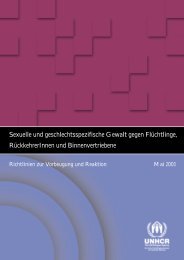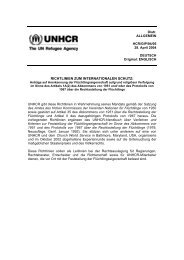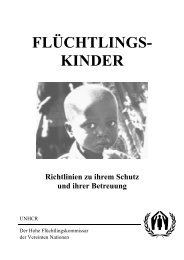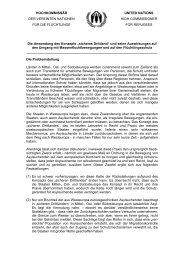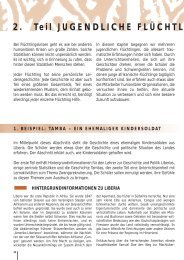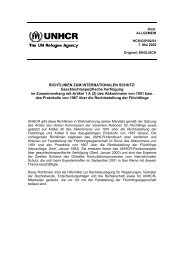Angelina Jolie's Sudan Journal - UNHCR
Angelina Jolie's Sudan Journal - UNHCR
Angelina Jolie's Sudan Journal - UNHCR
Create successful ePaper yourself
Turn your PDF publications into a flip-book with our unique Google optimized e-Paper software.
In the south, where fewer aid workers have been able to go, the situation isworse. Still daily rapes and raids. In that area alone, just last month over 100rapes were estimated.First, I will go to the two sheikhs of the village. It is explained I am here to learnwhat has happened.Their village was attacked and 48 people were killed. “Some could move, somecouldn’t. Many old people were too sick to move.” They went to the ‘Wadi’ (dryriver bed). They spent 6 months. They had been beaten. Their clothes andeverything had been taken. On the way to the lake 68 more people were killed.As they speak they stand straight and proud. Sad eyes. “We lost everything,”they repeat over and over. One man says, “My feet were tied, chilies were put onmy eyes and I was beaten. Six months eating grass and fruit. Eight people diedof starvation.”I feel these are peaceful men. Their movements, their way of speaking, even theway they tell their story. They tell it not with hate, just as fact. “Some were shotand burned and we only find their bodies now. There were a lot of rapes of ourwomen. We lost everything. What you see, what we wear now – all the women,all the kids – what they have on today is all we have. One woman is pregnanthere from the rape. Eight months pregnant.”Again children gather as we talk. If I look at them too long I’ll start crying. Theyhave witnessed so much. They have nothing, yet they sit quietly around theirelders and if you catch their eyes, they smile. Still generous of spirit. That justmakes it all the more heartbreaking.They lead us to the villages. The discussion on the walk turns to how some localpeople get threatened if they talk to internationals. As we walk through shrubsand green plants a few donkeys are grazing and birds are singing. The localchildren walk with us. A moment of peace. I can sense how these people couldlive peacefully as families. The nature of who they are is eye opening. I’m notmeeting IDPs or victims, but a people. Farmers. Families.They show me a pump built in 1995. “When the Janjaweed came they took themain pipe, now they are using it as a flag pole at their checkpoint. Rubbing it in.”Now it is unfit to drink, but it is all they have, so they do and it causes muchdiarrhea.The health centre is by the Janjaweed base. That makes it very difficult for localsto go and take their sick IDP children.14


